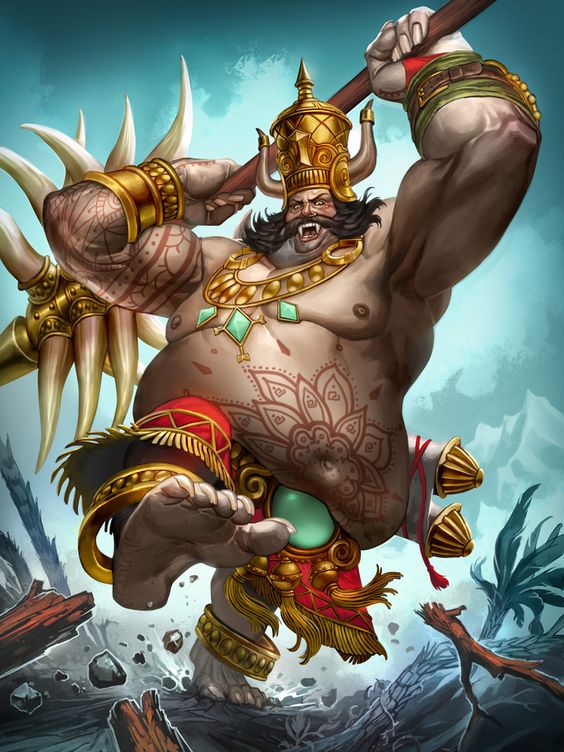
The story of Narakasur – Why do we celebrate Naraka Chaturdashi
Narak Chaturdashi, falling on the 14th day of the Kartik month in the Hindu calendar, holds a special place in the Diwali festivities. It goes by various names like Kali Chaudas, Narak Chaudas, Roop Chaturdashi, Roop Chaudas, Naraka Nivaran Chaturdashi, and Bhoot Chaturdashi. Positioned between Dhanteras and Diwali, this day is observed across India, marking the victory of Lord Krishna over the mythical demon king Narakasura.
The legend unfolds as Narakasura, having conquered all earthly kingdoms, instigates the wrath of Lord Krishna and his consort Satyabhama. The demon king, confident in his invincibility, could only be defeated by Mother Earth. Lord Krishna, accompanied by Satyabhama, arrives at Narakasura’s capital, Pragjyotishyapur. In the ensuing battle, while Lord Krishna dispatches other demons, he is struck down by Narakasura’s trident. Satyabhama, witnessing her husband’s predicament, shoots an arrow that ultimately slays Narakasura. To everyone’s surprise, Lord Krishna rises with a smile, revealing Satyabhama as the incarnation of Bhoomi Devi, destined to bring about Narakasura’s demise.
Narak Chaturdashi celebrations across the country
The observance of Narak Chaturdashi involves a significant ritual—a pre-sunrise oil bath. This tradition is rooted in the belief that Lord Krishna himself took an oil bath to cleanse his body of blood and grime after defeating Narakasura. This purifying act is considered auspicious and is widely practiced on this day.
Across India, Narak Chaturdashi is celebrated with regional variations. In northern India, it is referred to as Chhoti Diwali, while in Tamil Nadu, it takes on the name Tamil Deepavali. West Bengal marks the day as Bhoot Chaturdashi, lighting 14 diyas to welcome the forefathers and seek their guidance. In Goa, effigies of Narakasura, filled with grass and firecrackers, are burnt symbolizing the triumph over evil and the dispelling of ignorance. Maharashtra places great importance on Abhyanga Snan, a ritualistic oil bath using sesame oil. Additionally, people worship Yamraj, the God of Death, by chanting mantras and placing black sesame seeds in water after bathing.
In essence, Narak Chaturdashi serves as a reminder of the triumph of good over evil, wisdom over ignorance. The diverse celebrations across the country reflect the richness of cultural traditions intertwined with this auspicious day.
Support us by purchasing from our Affiliate Links:

Trackbacks/Pingbacks